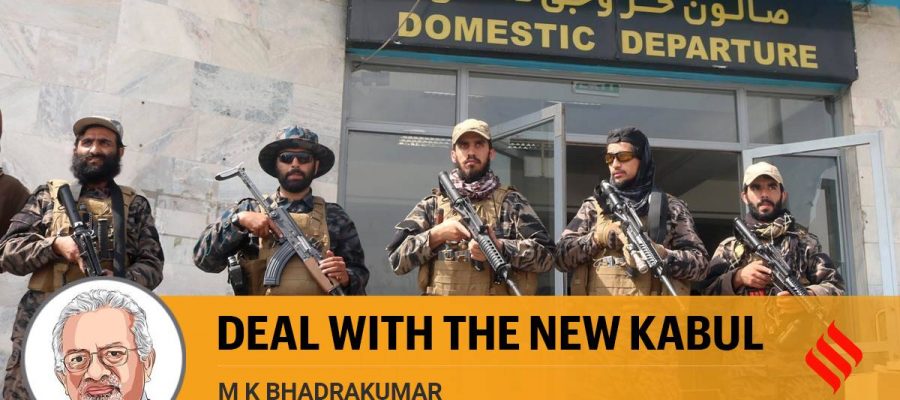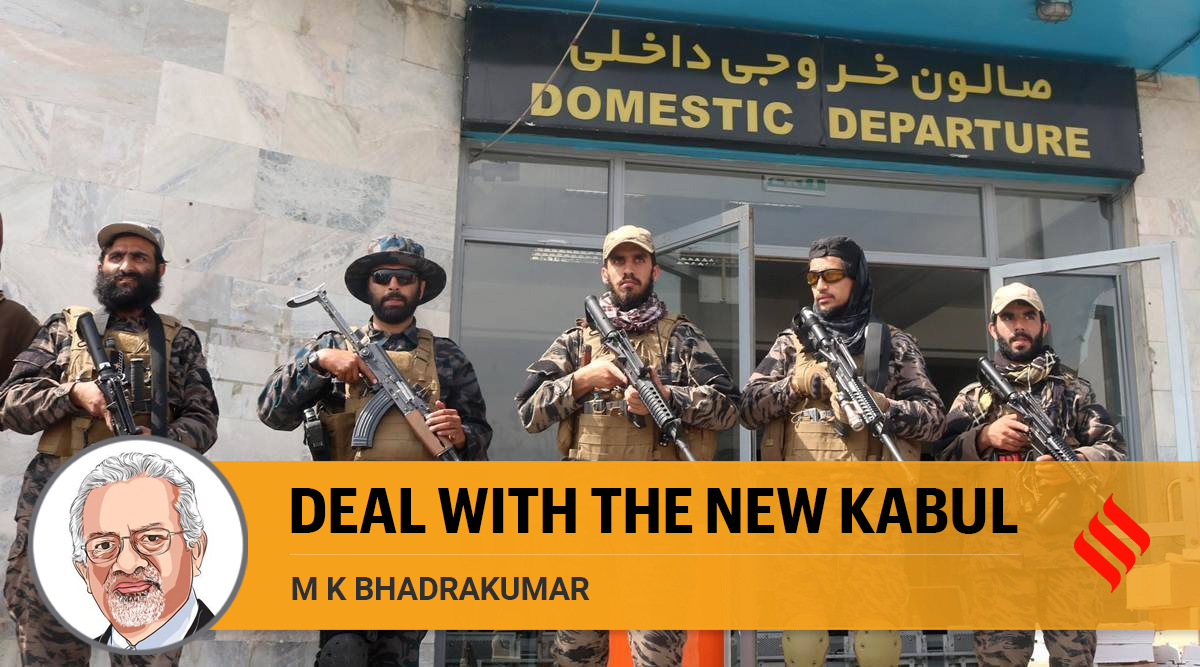M K Bhadrakumar writes: India must carry forward its nascent conversation with new government in Kabul.
Sometime ago, Professor Paul K Piff, a social psychologist at Berkeley, with an avid interest in the power of money over human interaction, gave a TED presentation titled “Does money make you mean?” The conclusion reached by a research team that worked under him was that as people’s levels of wealth increases, their feelings of compassion and empathy go down, and their “feelings of entitlement, of deservingness, and their ideology of self-interest increases.”
The problem of inequality haunts inter-state relationships too. Certainly, one way of looking at the Taliban’s interim government in Afghanistan is that it is an inevitable outcome of the United States, a privileged player in a rigged game through the 20-year period of war, regarding the Taliban with disdain.
The US got away with moralising to cover greed and self-interest, and with breaking laws whenever it suited it. It told off the International Criminal Court which sought to look into the US’s war crimes. The Pentagon ordered the departing US contingent to “demilitarise” Kabul airport’s assets. That was followed by the appalling Resolution 2593 passed by the UN Security Council dictating a code of conduct for the Taliban. And then, there was the hectoring by Secretary of State Antony Blinken.
Pashtunwali, or the way of the Afghans, promotes hospitality, love and forgiveness and tolerance (even to the enemy) — but it is also famous for robust self-respect. The singular message coming out of the interim government packed with hardliners and ex-Guantanamo detainees is that the Taliban will not defer to Washington. It is an act of derision as much as stubborn defiance. This must be understood. The restrained reaction by the state department to the interim government (which includes 14 ministers under sanctions and doesn’t have a single woman as minister) suggests that the Taliban message has gone home.
The heart of the matter is that the Taliban keenly sought US recognition but can also do without it. Granting “legitimacy” isn’t the sole American prerogative anymore in the present international environment. Cuba and Iran lived without it for decades. So, the Taliban will keep its promises, but of its own accord. After all, it did keep the 20-month-old promise not to take American lives — notwithstanding the US retraction on the release of thousands of Taliban cadres, lifting of UN restrictions on Taliban leaders, formation of the transitional government, resumption of air strikes and, finally, the unilateral shifting of the timeline for withdrawal of troops. The Pentagon concedes that the Taliban nonetheless cooperated in the evacuation at Kabul airport.
Among regional states, China and Iran have read the tea leaves correctly. Russia took a detour somewhere and began meandering, losing its sense of direction, but trust it to figure out a course correction. Pakistan avoids patronising attitudes. If there was any trace of triumphalism in ISI chief Lt Gen Faiz Hameed’s performance in the lobby of Kabul’s five-star Sarena Hotel, it was probably meant to tease his Indian counterpart.
Afghanistan’s needs are elementary. Its subsistence economy is not looking for nanotechnology from the US or the Raspberry Pi computer from the UK. Its reconstruction remains very basic as of now — roads, highways, transport, healthcare, foundational services and structures in public health and education, capacity building, job creation, etc. This is best sourced from countries with relevant development experience. Afghanistan is estimated to have mineral wealth worth around $3 trillion, which can generate a substantial income, if only peace is restored quickly. China’s help, which the Taliban is banking on, will make all the difference. Simply put, the circumstances are vastly different from the 1990s. That the US is having such a difficult time in comprehending this home truth belies logic.
The Panjshir victory was no fluke. In political terms, Panjshir is an amazing crucible — a population of just 1.75 lakh (in a country of 40 million people) and yet such self-defeating factional politics. The void after Ahmad Shah Massoud’s assassination 20 years ago is still being contested. Meanwhile, the curtain is coming down on the era of warlordism that had given verve to the erstwhile Northern Alliance. Suffice to say, the US prognosis of ISIS and apocalyptic predictions of imminent civil war are driven more by propagandistic considerations. The Taliban attaches the highest importance to internal security, as the appointment of Sirajuddin Haqqani as interior minister testifies, and he will be ruthless in stabilising the security situation. Make no mistake, Washington will deal with Sirajuddin sooner rather than later.
As for neighbouring countries, each has specific interests but all would agree that border security, drug trafficking and regional stability are overriding concerns. None of them wants Afghanistan to become a revolving door for international terrorists. Such a regional climate precludes the possibility of any of the neighbouring countries acting as “spoilers” or undermining Afghanistan’s stability and security. Equally, the UN agencies cannot afford to ignore the humanitarian concerns. Even western countries grudgingly acknowledge the need to engage with the authorities in Kabul. What else is needed for Taliban’s “international legitimacy”?
The Indian policies are at a crossroads. Continued bandwagoning with the US makes no sense. Indian diplomacy should harmonise with the regional capitals, including Beijing, which can be a natural ally on issues of terrorism. Breathing life into the RIC platform can be a pragmatic next step. The paradox is, with Delhi’s “Kabul option” having plummeted to ground zero, Pakistan’s comfort level may improve now.
The bottom line is that India’s vital interests remain to be secured. Therefore, the nascent conversation with the Taliban must be carried forward. Afghan sensitivities must be borne in mind, in words and deeds. Demonising the Taliban can only be counterproductive. India should know the puissant potency of ethno-nationalism. Indeed, constructive attitudes at the UNSC can generate equity.
This column first appeared in the print edition on September 10, 2021 under the title ‘Deal with the new Kabul’. The writer is a former diplomat who worked on the Iran-Pakistan-Afghanistan desk in the Ministry of External Affairs.
Source: Read Full Article



